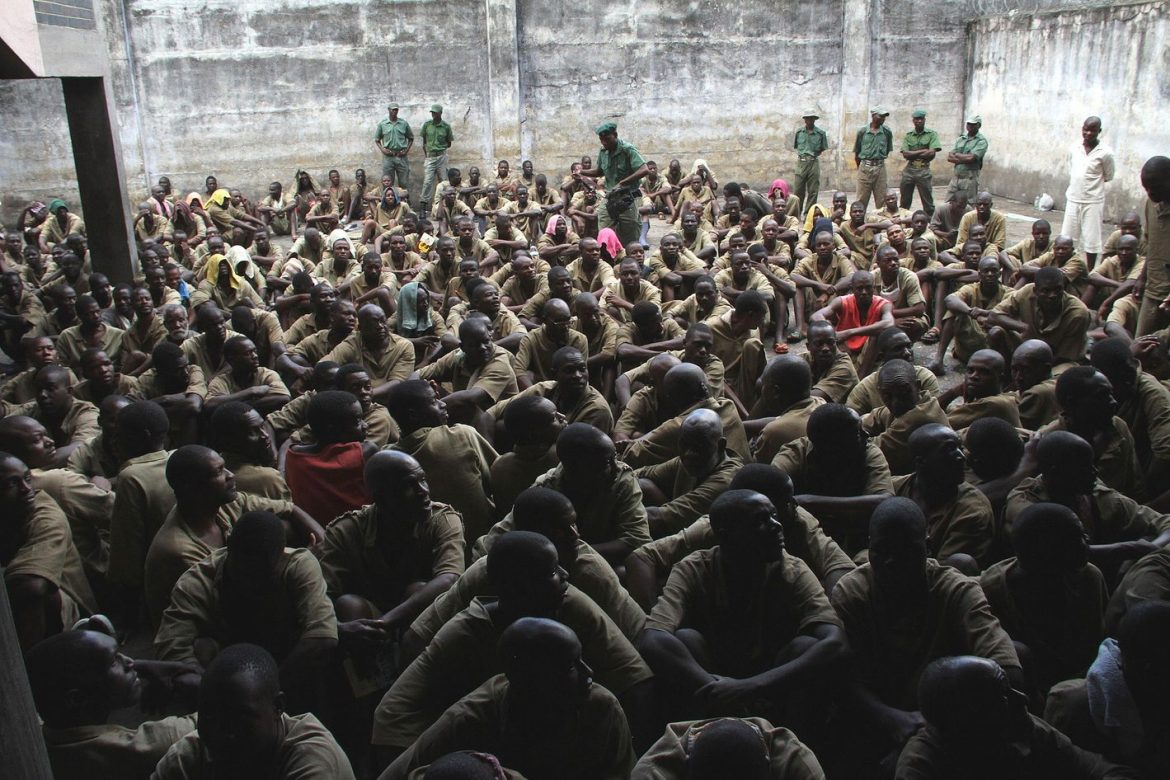Hopewell Chin’ono, a well-known Zimbabwean investigativ journalist. and Jacob Ngarivhume, opposition leader, spoke about the harsh conditions and overcrowding in Zimbabwe’s prisons, as well as the threat of COVID-19 spreading in prisons, Al Jazeera reports.
Ngarivhume told reporters that he was anxious about catching coronavirus when he was imprisoned for 43 days in an overcrowded cell with dozens of other inmates.
Designed to hold 16 people, the crammed cells at the Chikurubi Maximum Security Prison were full with more than 40 people, according to Ngarivhume.
The detainees were at a distance of 30 centimeters from each other. At night, the inmates spread filthy and lice-infested blankets on the hard concrete floor, forming elongated sleeping rows.
– You could literally smell the breath of the next guy, – said Ngarivhume.
Ngarivhume was charged with inciting violence and organizing banned anti-government protests. He was released on bail earlier this month.
With physical distancing virtually impossible, and major shortages in essential items to protect against COVID-19 such as soaps, hand sanitisers and clean face masks, Zimbabwe’s prison population is at great risk of being exposed to the highly infectious disease, according to experts.
Cases have been recorded in July in Bulawayo prison, 43 inmates and 23 prison staff tested positive for COVID-19.
While no official cases have been confirmed in other prisons in Zimbabwe, two former inmates at Chikurubi prison said several people tested positive for COVID-19 in August when the prison administration decided to conduct random tests.
– Prison authorities randomly selected an inmate for COVID-19 testing from the 10 cells. Of the 10 who were tested, seven were positive for COVID-19, – added Ngarivhume.
At the same time, the identified infectious prisoners were placed back in their cells.
In turn, Hopewell Chin’ono, who was detained and released along with Ngarivhume, noted that “Chikurubi is like a concentration camp”, where inmates don’t have basic things like soap and running water in cells.
– Prisons are failing to provide basic things like food. Prisoners eat only sadza and cabbages and beans. In the morning they are fed porridge that has no sugar. For me, this is a reflection of the corruption in the government system, – he said.
The situation has worsened by restrictions imposed by prison authorities to curb COVID-19. Under the new rules, relatives of inmates can no longer visit them and deliver basic necessities such as food and medicine.
– There is no medication in there for those showing symptoms. Those who show symptoms such as sore throats are given warm water to drink and that is it. The prisoners don’t have masks. Most are given masks when they are set to appear in court to conform with the law, – he added.
On the other hand, Norman Matara, secretary-general for the Zimbabwe Association of Doctors for Human Rights, said prisons are “potential COVID-19 time bombs, by their nature”.


